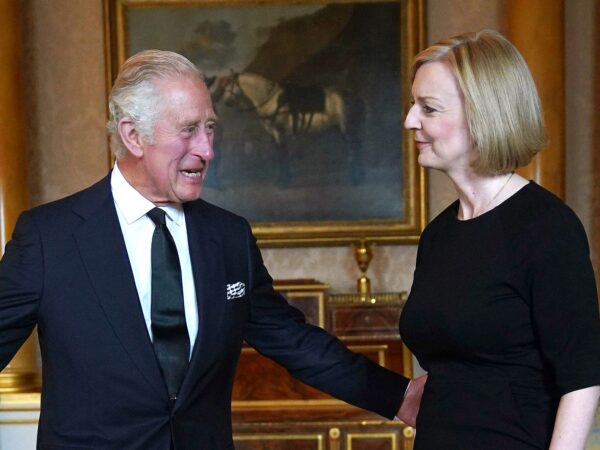On Wednesday, King Charles III met British Prime Minister Liz Truss for the first time, humorously murmuring “dear, oh dear” as he welcomed her to Buckingham Palace.
His impromptu words appeared to sum up the beleaguered leader’s position as she confronts backlash from her party over the ongoing consequences of the government’s mini-budget.
The palace posted a video of Ms Truss being introduced by the equerry as she bows and walks forward to shake hands with the monarch.
“Your Majesty, great to see you again,” she says in the footage.
The king replies: “Back again”
Ms Truss adds: “Well, it’s a great pleasure.”
The king replies: “Dear, oh dear. Anyway.”
The meeting occurred only hours after Ms Truss tried to deflect the apparent feeling of impending doom during Prime Minister’s Questions on Wednesday, insisting once more that she would not reduce expenditure to pay for the sequence of tax cuts and energy price guarantees.
According to insiders, she later had a rocky interaction with Tory backbenchers when she told the 1922 Committee that small companies would have faced “devastation” if the government had not intervened to restrict energy costs.
According to accounts, she was received with frank criticism, with MPs expressing alarm over rising mortgage rates and the Tories’ drop in the polls.
Ms Truss had “trashed the last 10 years of workers’ Conservatism,” according to the chair of the Commons education committee, Robert Halfon.
Former deputy prime minister Damian Green claimed Conservative MPs were openly considering repealing some mini-budget provisions. They questioned how else she could reduce debt after she rejected public expenditure cuts.
“It is, indeed, a topic of conversation around the tea rooms of the House of Commons as well, because we can all do the rough maths and see that it is very difficult,” he told BBC Radio 4’s PM programme.
“One of the obvious ways would be possibly to defer some of the tax cuts or the failure to put taxes up.”
Foreign Secretary James Cleverly, appearing on the news Thursday morning, said the government was correct to adhere to its fiscal goals.
“Ultimately, what that mini-budget was about was protecting tens of millions of people from unaffordable energy prices. That was the bulk of that proposal,” he said.
“It was about making sure that taxes for 30 million people were reduced a little bit, and those are really strong principles. I think we should absolutely stick with those.
“All those things are really key for the growth agenda the prime minister has put forward.”
During the leadership campaign, the prime minister made it clear that she was running on a platform to “reduce taxation levels from the 70-year high not put taxes up further than they already are”
He also stated that he wants to ensure economic development and that Ukraine is successful in protecting its land against Russia.
“She is delivering on all three counts,” Mr Cleverly added.
“I wasn’t in the meeting but I know what she said to the 1922 [committee] is we have got to make sure we help people keep more of their earnings in their own pockets. That we have to be good custodians of the public purse. But we have got to grow the economy. That’s what she’s pushing for.
“I think those are solid, traditional, governmental principles and I think we should stick with it.”
The prime minister and chancellor are likely to meet key MPs beginning next week in an attempt to reassure them that Mr Kwarteng’s medium-term budget plan, which is due on October 31, would address their worries.

